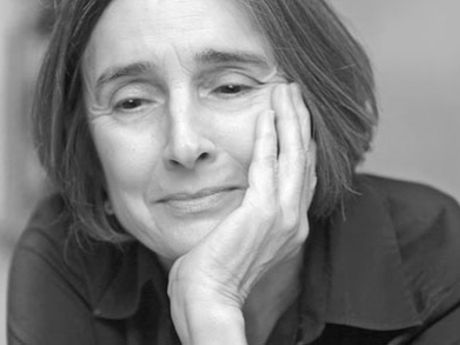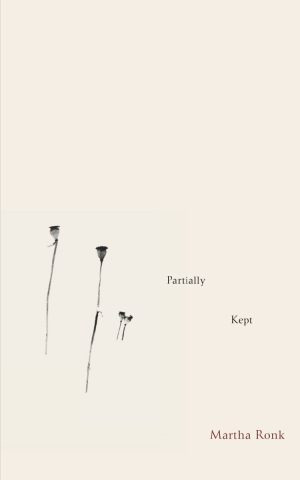In Their Own Words
Martha Ronk's “The”

The
When having finished the
the beginning again, the article
in the root of Water fern, every eye may discern the form of a Half Moon
everyone, every eye, every age disappears
a dissolving moon, nothing to be seen through the smoke the ashes
the sentence itself an integument of flexiable green, evoking
beginning and end
a half mirrored a whole a half and beginning again—
and discernment, the quiet of parsing
the streets stilled
ruins one's ancestors recalls and filmic versions of the same
the root of a water fern and time enough for the
"The" reprinted from Partially Kept (Nightboat, 2012). Reprinted with the permission of Martha Ronk. Copyright © 2012 by Martha Ronk. All Rights Reserved.
On "The"
I began Partially Kept in dialogue with the great 17th century essayist, Sir Thomas Browne while reading The Garden of Cyrus. My career-long practice has been to link my own writing to the writing of others and often to those I have taught (Shakespeare for Why/Why Not, W.G. Sebald for Vertigo), so that intellectual inquiry and creative inquiry inform one another, so that I find myself in the magnetic field of someone else's range and diction, so that I am moved out beyond mere self-reflection. In this case, I was unavoidably drawn by the evocative specificity of Browne's language that also echoed experiences of mine at North Hill, a garden in Vermont.
All the poems in this book address disappearance, of an era and arcane vocabulary and way of looking at nature, and of one's own past and finally oneself. What, then, is kept from erasure, what lingers? From the outset, I wanted poems unlike those in other books of mine, poems more open and quiet, poems formed of white space signaling the space between now and then, between another's perceptions and one's own. It was an assignment that led to poems utilizing the gaps created by dangling modifiers, sentences that break off midstream, and images of blankness as in the poem, "No Sky."
This poem, "The" directly takes up the ways things start—often with an article—and then gestures forward as the last and only word in the final line, hanging in space. Throughout the book, Browne's words are in italics and so here the italicized line is a quotation representative of his locating analogies throughout nature. Although those of us in the 21st century have lost his certainty, here I follow Browne obliquely by presenting the sentence as an integument of green water fern in which my words mirror his. I am interested too in the ways in which in a writer's trance, in "the quiet of parsing," the words of others prompt forgotten memories or motivate creative representations (films, poems, letters). The poem repeats "beginning" and utilizes the slant rhyme, "again" and "end" to evoke process. The end word, "the," suggests that other words and images could follow. I hope that these collaged poems create a pivot back to another's poetic language and then forward into a reader's own ways of perceiving the world.



